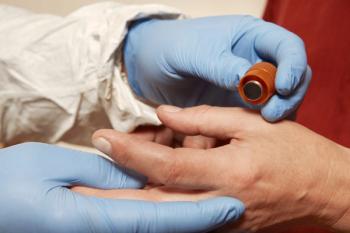
Spectroscopy Announces the Winner of the 2020 Emerging Leader in Atomic Spectroscopy Award
Jacob T. Shelley, the Alan Paul Schulz Career Development Professor of Chemistry at Rensselaer Polytechnic Institute, has won the 2020 Emerging Leader in Atomic Spectroscopy Award, which is presented by Spectroscopy magazine. Shelley’s work currently focuses on the development of plasma-based tools for mass spectrometry, to enable rapid and sensitive detection and identification of a broad range of analytes from complex matrices.
Jacob T. Shelley, the Alan Paul Schulz Career Development Professor of Chemistry at Rensselaer Polytechnic Institute, has won the 2020 Emerging Leader in Atomic Spectroscopy Award, which is presented by Spectroscopy magazine. This annual award, begun in 2017, recognizes the achievements and aspirations of a talented young atomic spectroscopist, selected by an independent scientific committee. The award will be presented to Shelley at the 2020 Winter Conference on Plasma Spectrochemistry (Tucson, Arizona, January 12–18, 2020), where he will give a plenary lecture.
Shelley’s work currently focuses on the development of plasma-based tools for mass spectrometry, to enable rapid and sensitive detection and identification of a broad range of analytes from complex matrices.
One area of focus within this work has been the use of solution-cathode glow discharge (SCGD) as an ionization source for mass spectrometry. Shelley showed that SCGD could be used for the detection of elemental, small molecule, and biopolymeric species, with detection limits for elemental species in the low-to-sub-ppb range.
He has also demonstrated the tunable ionization chemistry possible with the flowing atmospheric-pressure afterglow (FAPA) plasma ionization source when coupled with mass spectrometry. In this work, it was found that the ionization pathway of species could be tuned by adjusting the plasma parameters (such as discharge current and gas flow rate). Specifically, high and low current modes allowed detection of non-polar species, which had been difficult to achieve with ambient ionization sources.
Shelley and others have also described the development of a handheld, portable plasma source for mass spectrometry based on a dielectric barrier discharge that could be continuously used for up to 8 hours. Coupled with a mass spectrometer, the source could be used for a wide range of applications-from the detection of cocaine sampled from human fingers to pesticides present in fruit from a grocery store or farm field.
Other investigations have focused on fundamentally understanding the desorption and ionization processes, as well as their propensity for matrix effects, of direct analysis mass spectrometry approaches, including direct analysis in real time (DART), low-temperature plasma (LTP) probe, and FAPA. In this work, it was found that LTP and FAPA (where the plasma directly interacts with the sample) exhibited a unique type of matrix effect where non-polar species could prevent the formation of protonated water clusters and inhibit ionization of polar species.
Shelley has published 36 papers in peer-reviewed journals and has been an author on multiple oral or poster presentations at scientific conferences.
Shelley has received several other awards, including the Bunsen-Kirchhoff Award from the German Working Group for Applied Spectroscopy (DAAS) of the German Chemical Society (GDCh), the Tagungsstipendium Analytische Chemie from the German Chemical Society, a Humboldt Research Fellowship from the Alexander von Humboldt Foundation, and a Gordon F. Kirkbright Bursary Award from the Association of British Spectroscopists.
For information about how to nominate a young scientist for the 2021 award, please see the
Newsletter
Get essential updates on the latest spectroscopy technologies, regulatory standards, and best practices—subscribe today to Spectroscopy.




